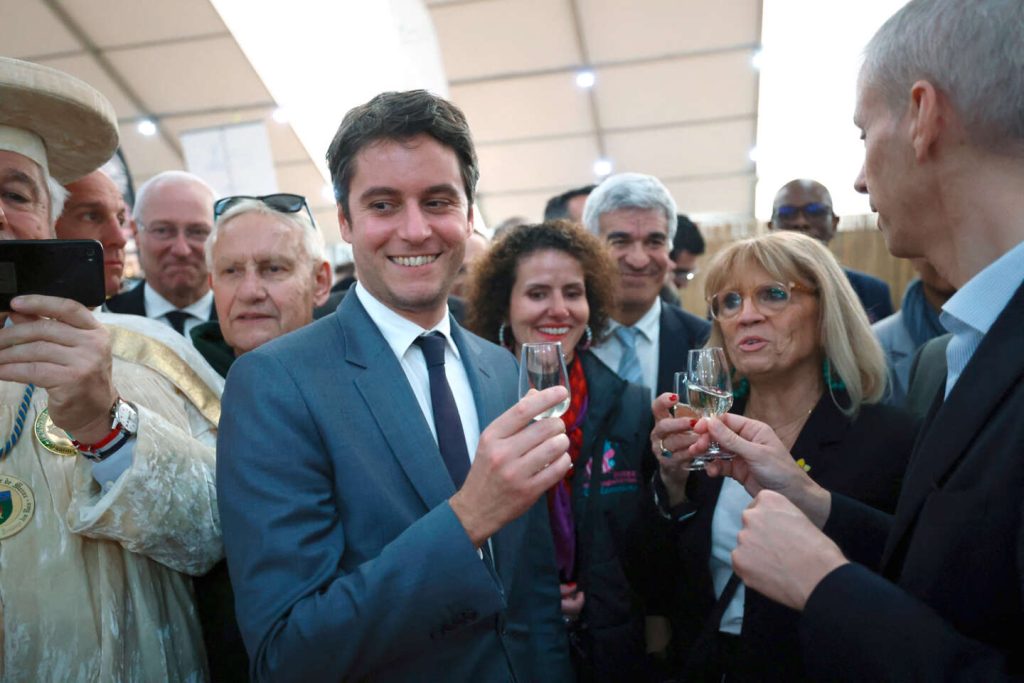The accused takes his place in the courtroom, with a shaved head, an earring, and irritation on his lips. None of the alleged victims are present, including Gabriel Attal, who did not file a complaint, and the three police officers accusing Jérémy R. of “outrage and rebellion.” In addition to the “ordinary” outrage, this 39-year-old heating engineer must answer to charges of homophobic outrage against the former Prime Minister. He protests, claiming he has many gay friends and is not homophobic. The incident occurred on March 22 at a cheese and wine fair in Coulommiers, where Jérémy R. and a colleague attempted to approach the Ministerial convoy and insulted Gabriel Attal and the police. Jérémy R. resists arrest and is brought in for questioning.
In his defense before the court, Jérémy R. gives a convoluted explanation, claiming that the “Gabriel” he insulted was not the Prime Minister, but a colleague who had spilled his beer earlier. However, the court insists on knowing who he directed the offensive language towards. Despite initially claiming it was directed at the crowd, the magistrate points out the proximity of Gabriel Attal during the incident. Jérémy R., accompanied by his partner, eventually expresses regret for his “unjustifiable” remarks and attributes them to his subconscious under the influence of alcohol. He is fined 450 euros and required to attend a citizenship training program as a consequence of his homophobic outburst.
The courtroom incident involving Jérémy R. and Gabriel Attal sheds light on the changing societal attitudes towards LGBTQ individuals in politics. The former Minister Franck Riester was one of the first right-wing personalities to openly embrace his homosexuality, and Gabriel Attal emphasized the progress made in French society regarding LGBTQ rights during a recent speech. Despite the increased visibility of LGBTQ politicians, there has been a 19% rise in crimes and offenses related to homophobia in 2023. Politicians who openly declare their sexual orientation face double exposure to criticism aimed at both elected officials and the LGBTQ community.
The challenges faced by LGBTQ individuals in politics reflect the broader societal issues surrounding LGBTQ rights in France. Despite the progress made in recent years, incidents like the one involving Jérémy R. and Gabriel Attal highlight the ongoing struggle for acceptance and tolerance. The case also underscores the importance of addressing homophobia within all levels of society, including the legal system. As France continues to grapple with issues of discrimination and inequality, the need for inclusivity and understanding remains critical to building a more diverse and equitable society. Through dialogue and education, it is possible to create a more accepting and respectful environment for all individuals, regardless of their sexual orientation.


